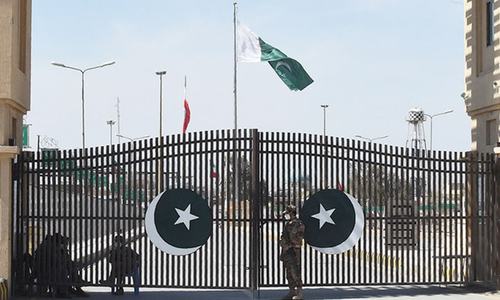• Five countries remain in category C
• WHO registers eighth Covid-19 vaccine
ISLAMABAD: The National Command and Operation Centre (NCOC) on Wednesday decided to allow inbound air traffic at full quantum from Nov 10, but retained five countries in category C.
Meanwhile, Covid-19 claimed 11 lives and infected 561 more people on Wednesday.
In another development, the World Health Organisation (WHO) allowed emergency use of another vaccine, taking the number of validated vaccines to eight.
The NCOC, in a statement, said owing to mass vaccination undertaken by various countries, a downward trend had been observed in all Covid-19 indicators across the globe.
“After enforcement of obligatory vaccination for inbound travel in Pakistan with effect from Oct 21, Covid-19-related travel policy and health/testing protocols have been revised. Inbound air traffic will now operate at full quantum with effect from Nov 10, 2021,” it said.
The forum further stated that five countries had been placed in category C on the basis of high positivity, high daily Covid-19 cases/deaths and low vaccination rate. These countries are Armenia, Bulgaria, Costa Rica, Iraq and Mexico.
On the other hand, Mongolia, Slovenia, Thailand, Trinidad and Tobago and Ukraine have been included in high-risk countries.
In the wake of high disease indicators, Russia, Iran, Ethiopia, Germany, the Philippines and Afghanistan have also been placed in high-risk [category] for continuous monitoring, but no travel restriction has been imposed,” the statement said, adding that all countries (including high-risk nations) were placed in category B with no inbound travel restrictions.
An official of the Ministry of National Health Services (NHS), requesting not to be named, said Pakistan had introduced three categories to deal with Covid-19.
“Countries in category A are exempted from the mandatory Covid-19 test, travellers from areas in B category require a negative polymerase chain reaction (PCR) test that must be taken within 72 hours of the travel date while people coming from nations in C category are restricted and can travel only under specific NCOC guidelines,” he added.
The NCOC said 100pc vaccination for all inbound passengers would be ensured while all passengers of six years age and above (locals/ foreigners) should be in possession of a negative PCR test report (max 72 hours old) before boarding.
The forum said testing protocols were applicable on all inbound border terminals except Afghanistan.
“Afghans entering Pakistan through border terminals are exempted from vaccination certificates or showing PCR test results,” the NCOC said, adding that “they will however undergo stringent testing/quarantine protocols as already emplaced”.
According to data shared by the NCOC, there were 22,570 active patients as of Nov 3, out of whom 1,361 were admitted to hospitals across the country.
Emergency use of eighth Covid-19 vaccine
The World Health Organisation (WHO) on Wednesday issued an emergency use listing (EUL) for Covaxin® (developed by Bharat Biotech), adding to a growing portfolio of vaccines validated by the WHO for prevention of Covid-19.
“This emergency use listing expands the availability of vaccines, the most effective medical tools we have to end the pandemic,” said WHO Assistant-Director General for Access to Medicines and Health Products Dr Mariângela Simão.
“But we must keep up the pressure to meet the needs of all populations, giving priority to the at-risk groups who are still waiting for their first dose, before we can start declaring victory,” Dr Simão said.
Covaxin, which is the eighth vaccine registered by the WHO, will be administered in two doses, with a dose interval of four weeks, in all age groups of 18 and above. It was found to have 78pc efficacy against Covid-19 of any severity, 14 or more days after the second dose, and is extremely suitable for low- and middle-income countries due to easy storage requirements.
Published in Dawn, November 4th, 2021















































